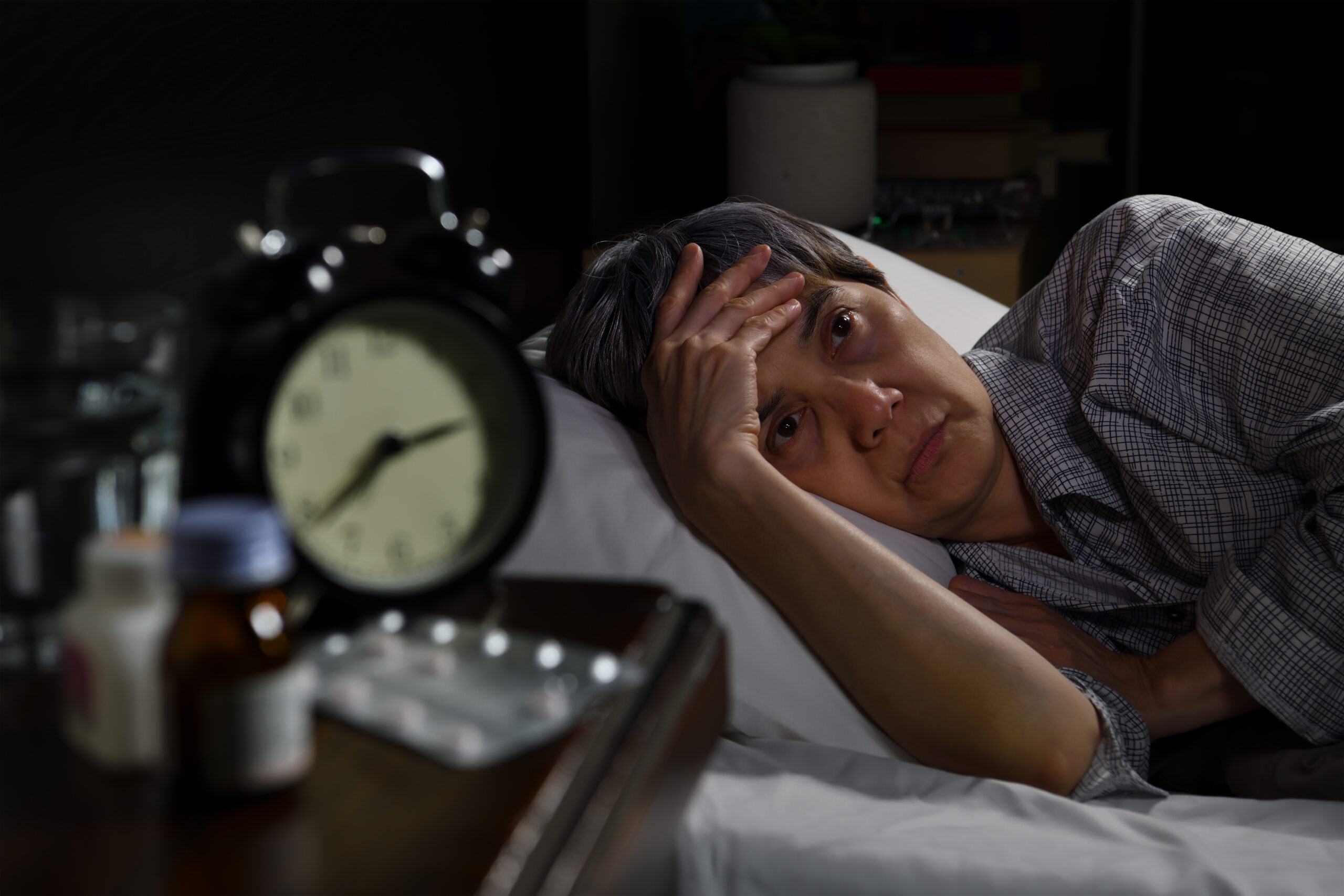

Sleep problems are not a natural part of aging: How to build good sleep habits?
Sleep disturbances are relatively common in seniors, with many sleeping less than they need as they get older. This may be due to the medications they are taking for their diagnoses, but also to medical or psychological difficulties. Although sleep patterns change with age, disrupted sleep and feeling tired upon waking is not a natural part of aging.
As we age, our internal clocks become less efficient, leading to earlier falling asleep and waking up. Seniors may have trouble falling asleep, sleep shorter, wake up frequently, or have less quality sleep. However, sleep disorders can affect individuals of all ages. “Around 50% of people over 55 have problems falling asleep and with the quality of their sleep. Insomnia is one of the most common health problems, especially among seniors. It often coexists with medical, psychiatric or neurological disorders. Insomnia can also be associated with stress, medications, poor sleep habits or changes in the environment where we sleep. A primary sleep disorder means that there is no other medical or psychiatric cause,” explains MUDr. Miriama Šatalová, a doctor at the Department of the Long-Term Ill at Bansko Hospital. Several studies have found that seniors who had trouble sleeping had pre-existing health problems and were less physically active. Medical conditions that can cause sleep problems include serious illnesses such as Parkinson’s disease or Alzheimer’s disease. Good sleep is also hindered by various types of chronic pain or, conversely, the pain keeps a person awake at night.
“Studies have also shown that 39% of people with cardiovascular disease regularly slept less than 6.5 hours, resulting in an increased risk of death. Sleep is also affected by neurological diseases, reflux, irritable bowel syndrome, asthma and chronic obstructive pulmonary disease, which can increase the risk of sleep apnoea,” explained MUDr. Šatalová. It is not uncommon for seniors to take medications for their primary diagnoses that also have the side effect of affecting sleep. These are mainly diuretics, some antihypertensives, corticosteroids, antidepressants or antihistamines. Caffeine, alcohol and smoking can also contribute to sleep disturbances.
“Our years of experience with patients show that the most common sleep problems in the elderly are primarily sleeping problems, with some studies suggesting that 50-70% of people over 65 have trouble falling asleep at all. Another major problem is obstructive sleep apnoea, or short interruptions in breathing during sleep, which occurs when the upper airway is repeatedly blocked. It is estimated to affect 20 to 60% of people over 65 years of age,” an experienced expert explains the reality. The third complication is restless legs syndrome, or the need to move the legs while sleeping. It can start at any age, but more severely affects middle-aged and older adults, in whom it can occur more often and last longer. If a person does not get a good night’s sleep only exceptionally, he or she feels tired and less able to perform during the day. However, if the problem recurs frequently, it changes the quality of life in general. In that case, it is necessary to contact a specialist.
“For seniors, it is recommended to use non-pharmaceutical treatments first, such as cognitive-behavioural therapy for sudden and chronic insomnia. The latter includes sleep education, stimulus control, limiting time in bed. Studies show that cognitive-behavioural therapy has largely improved sleep quality in people with insomnia,” explains MUDr. Šatalová. According to doctors, good sleep habits can be formed, but a few rules must be followed.
“First and foremost, you need to have a routine, go to bed and get up at the same time every day, use your bed only for sleep, not for work, do quiet activities such as reading before bed, avoid bright lights at bedtime, and maintain a soothing and comfortable bedroom environment. It is a good idea to limit liquids in the time just before bedtime, not to eat for 3 to 4 hours before bedtime, and not to exercise just before bedtime. It is advisable to take a warm bath to relax and avoid sleeping during the day. If the trouble falling asleep lasts up to 20 minutes, you need to get up and do something before you go back to bed. Forced sleep can make it harder to fall asleep. If these changes are not enough, your doctor may recommend medication. Medication should certainly not replace good sleep habits, but it may provide some relief in the short term. Sleeping pills are recommended to be taken only for the short term. However, the treatment of insomnia is individual,” adds MUDr. Šatalová.
